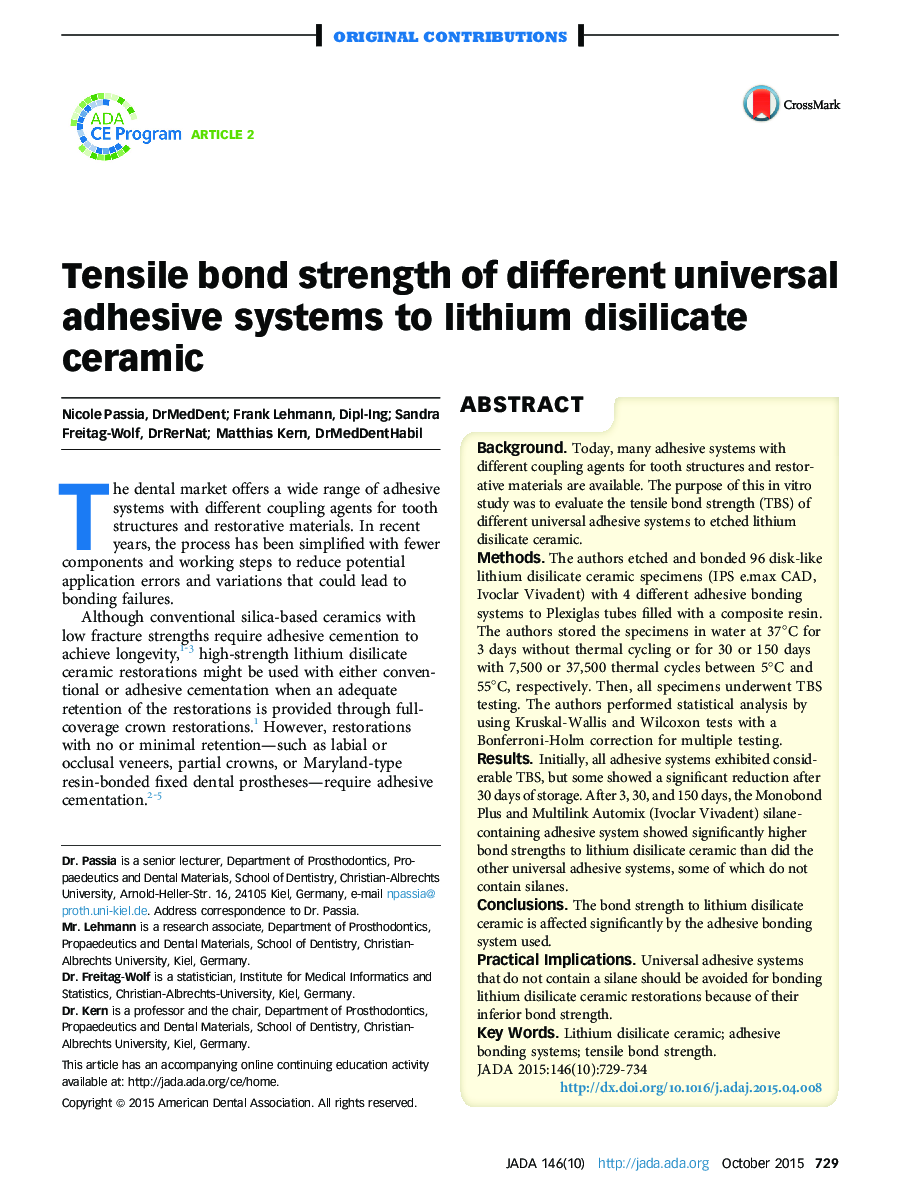| Article ID | Journal | Published Year | Pages | File Type |
|---|---|---|---|---|
| 3136543 | The Journal of the American Dental Association | 2015 | 6 Pages |
BackgroundToday, many adhesive systems with different coupling agents for tooth structures and restorative materials are available. The purpose of this in vitro study was to evaluate the tensile bond strength (TBS) of different universal adhesive systems to etched lithium disilicate ceramic.MethodsThe authors etched and bonded 96 disk-like lithium disilicate ceramic specimens (IPS e.max CAD, Ivoclar Vivadent) with 4 different adhesive bonding systems to Plexiglas tubes filled with a composite resin. The authors stored the specimens in water at 37°C for 3 days without thermal cycling or for 30 or 150 days with 7,500 or 37,500 thermal cycles between 5°C and 55°C, respectively. Then, all specimens underwent TBS testing. The authors performed statistical analysis by using Kruskal-Wallis and Wilcoxon tests with a Bonferroni-Holm correction for multiple testing.ResultsInitially, all adhesive systems exhibited considerable TBS, but some showed a significant reduction after 30 days of storage. After 3, 30, and 150 days, the Monobond Plus and Multilink Automix (Ivoclar Vivadent) silane-containing adhesive system showed significantly higher bond strengths to lithium disilicate ceramic than did the other universal adhesive systems, some of which do not contain silanes.ConclusionsThe bond strength to lithium disilicate ceramic is affected significantly by the adhesive bonding system used.Practical ImplicationsUniversal adhesive systems that do not contain a silane should be avoided for bonding lithium disilicate ceramic restorations because of their inferior bond strength.
